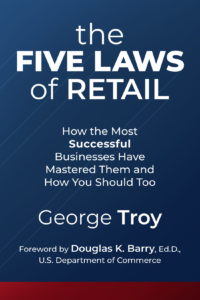Does Amazon Know What They’re Doing … or Have They Bitten Off More than They Can Chew?
The answer to that question remains to be seen. Amazon is a hugely successful business. They came from nowhere in just a few years to achieve revenue of $136 billion in 2016 and employ 340,400 employees. They are without question the behemoth in online retailing. Something like 45 percent of all purchases made online in the US are through Amazon.
Now What?
Now Amazon has purchased Whole Foods Marketplace, a bricks-and-mortar retailer with over 350 physical store location in the US and Canada. They’re a very different type of company in many ways. But it’s not the categories of merchandise sold or the technology that make Amazon different. It’s the culture and the channel that are so different.
Will Amazon Disrupt Whole Foods’s Culture and Values?
Successfully running a bricks-and-mortar retail business is different and more complicated, harder even, than an online store. The strategies Amazon used to grow into what they are today are not the same strategies needed to successfully run physical stores.
Through the Lens of The Five Laws of Retail
Amazon follows and executes several of the Five Laws of Retail exceedingly well. For example, “Turn is Magic.” Amazon turns its inventory at a fast rate—an astonishing 16 times in 2004. Although that number has slipped since then due to a greatly expanded assortment of products, it is still fast enough to be profitable. (Although as long as we are talking about profitability, Amazon is not very profitable at all, producing only about $5.7 in total profits over their entire 20 year history while having a market cap of over $500 billion. So they don’t have much wiggle room to make mistakes.)
Amazon is relentless in their drive for efficiency. Also, they do a great job with “It’s the Retail Price.” Amazon is competitive on just about everything.
And consider “The Power of Product.” Take a look: Amazon has whatever you are likely to want.
But we don’t know about the First and the Fifth Laws of Retail, “People First” and “Protect Your Downside.” Let’s look at those.
People First
A bricks-and-mortar store is a community. Sales people, manager(s), and, of course, the customers, all of whom interact face-to-face on a daily basis. That’s different from a “system” that allows you to choose and pay online, and have your items shipped right to you. At a bricks-and-mortar store you experience live interaction when you have people-to-people collaborations and lots of things happen. A culture grows. It is a complex set of social behaviors and norms that include tone, expression, attitude, body language, and all the things that make us human.
Community and culture are largely absent in an online business. And all of that must be consciously managed and directed to achieve positive results. Whole Foods produced about $15.7 billion in sales last year by developing core values over time that include support for employee happiness and nourishing their customers, among others.
Yet clearly Whole Foods did some things wrong, or they would have been more profitable and not forced into a sale.
But Amazon’s culture does not have the same values. We’ll see how it works out. But it will be important for Amazon to recognize that a culture exists at Whole Foods, and that culture has meaning.
Downside
Maybe Amazon’s got it nailed. I do not think Amazon has ever had a bad sales year. Ever. That can lead to a corporate culture that thinks it’s invincible. That’s when to look out. When they hit a bump in the road—and that will inevitably happen—what will they do? If a management team has never seen a bad year and does not have a plan to deal with one, they might be at a loss.















